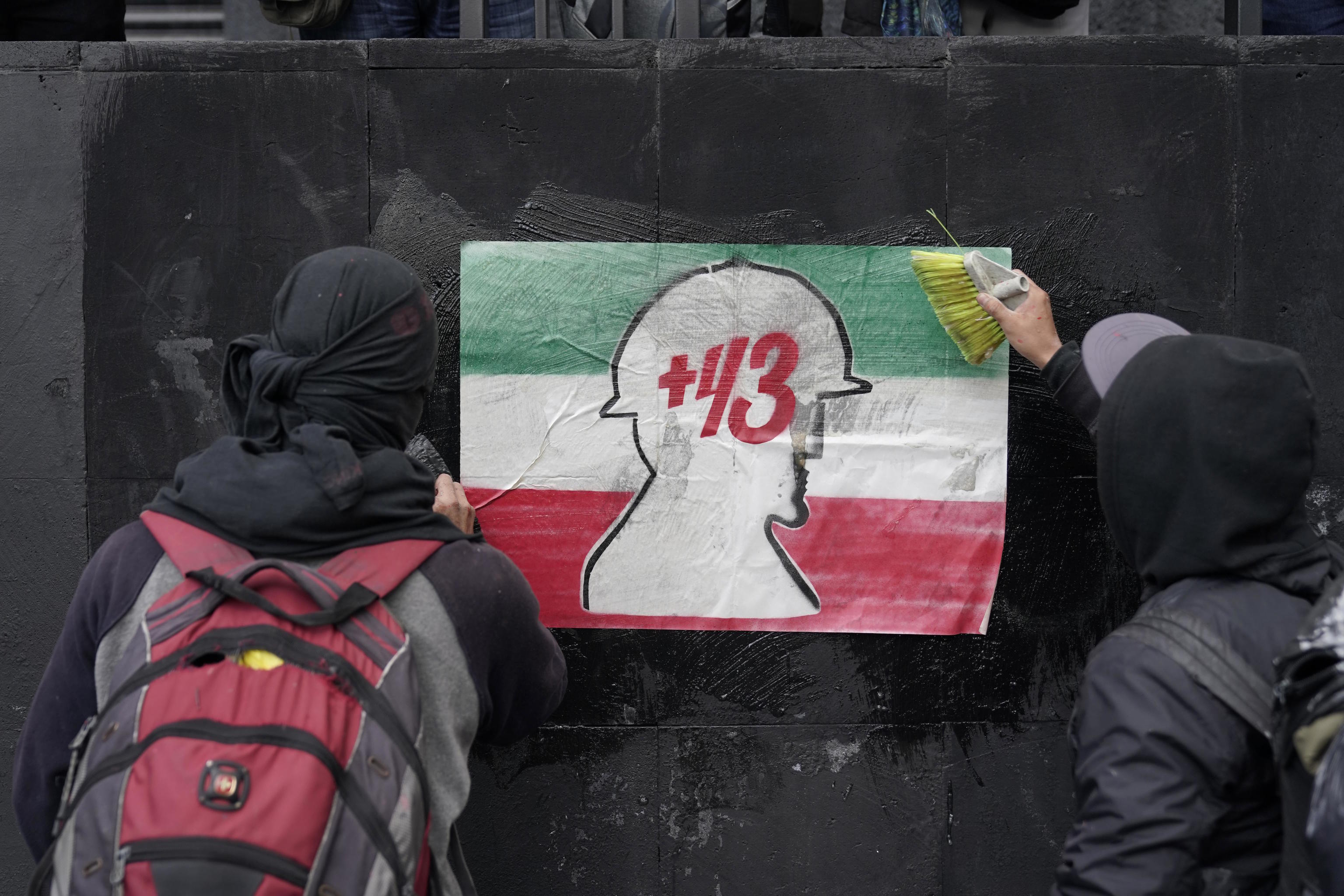Ten years later, it's still not clear where the students from the Rural Normal School at Ayotzinapa are. Authorities believe they were killed, but have only turned up small bone fragments from three of them.
The families, with the support of the school known for its radical activism, continue to demand justice. They maintain a lack of political will is responsible for not finding the truth. If it was a "state crime" as the current administration says, the government must know what happened and who is hiding information.
In a country with more than 115,000 registered disappearances, this case continues to hold the public's attention because it combined cartel violence and corrupt authorities and remains stubbornly unresolved.
It's considered an emblematic case and another example of abuses that occurred decades ago in Mexico's dirty war and were never corrected.
The students were attacked by security forces linked to a local drug gang, Guerreros Unidos, in Iguala, when the students were stealing buses to transport themselves to a protest.
During the administration of Enrique Peña Nieto (2012-2018), authorities said the students had gone to Iguala, Guerrero to protest at an event — the mayor, now jailed, was linked to local gang Guerreros Unidos. They were allegedly mistaken for members of a rival gang.
The Peña Nieto administration said that Guerreros Unidos had abducted and killed the students, burned their bodies in a huge fire and tossed their ashes into a river.
But investigations by the Inter-American Commission on Human Rights, the successor Attorney General's Office and a Truth Commission created in 2019, found that the fire at a dump was a lie built on false statements extracted under torture and manipulated evidence.
Those subsequent investigations found that an enormous operation was put in motion that night involving members of Guerreros Unidos, but also local, state and federal police. And the army was aware of everything that was happening because it had a base in Iguala, soldiers in the streets and spies among the students.
Investigators said members of the army were involved with the gang in smuggling heroin from the mountains of Guerrero on buses to the United States. Prosecutors said the decision to hide the truth was taken at the highest levels of government.
There are more than 100 people in custody and dozens have been charged, but no one has been convicted.
At the end of the previous administration, Mexican courts determined that the investigation was plagued by errors and manipulation. There were dozens of cases of torture.
Those abuses and missteps led to many of those involved being released. Some have been arrested again under the current administration.
The highest-ranking person charged is former Attorney General Jesús Murillo Karam, who is accused of torture, forced disappearance and obstruction of justice. There are also 16 soldiers, most of whom are awaiting trial on house arrest, which infuriates the students' families.
López Obrador had promised to find the students and hold those responsible accountable. But in 2022, when more and more evidence pointed toward the military's involvement in the attack and cover-up the administration's tone changed.
The president had ordered the military to open its archives to investigators. That didn't happen. Instead, López Obrador shifted more power and responsibility to the military than any president in recent history.
The prosecutor leading the investigation, Omar García Trejo, was suddenly demoted after he sought arrest orders for two dozen soldiers. He was replaced by someone unfamiliar with the case.
There was also growing political pressure to show results, said Santiago Aguirre, one of the families' lawyers. The administration presented some evidence that did not appear to come from reliable sources and the government's searches turned slipshod.
Where do the families want the investigation to go?
Their lawyers point out key arrests are still lacking, among them the man who led the investigation during the Peña Nieto administration, Tomás Zerón. In videos, Zerón is seen interrogating and threatening prisoners. He sought refuge in Israel, which has not agreed to extradite him despite Mexico's request.
They also say they want to see military intelligence records from that night that they still haven't had access to. They want too more cooperation from the United States government, which has prosecuted members of Guerreros Unidos in drug trafficking cases that also revealed their ties to the military.
